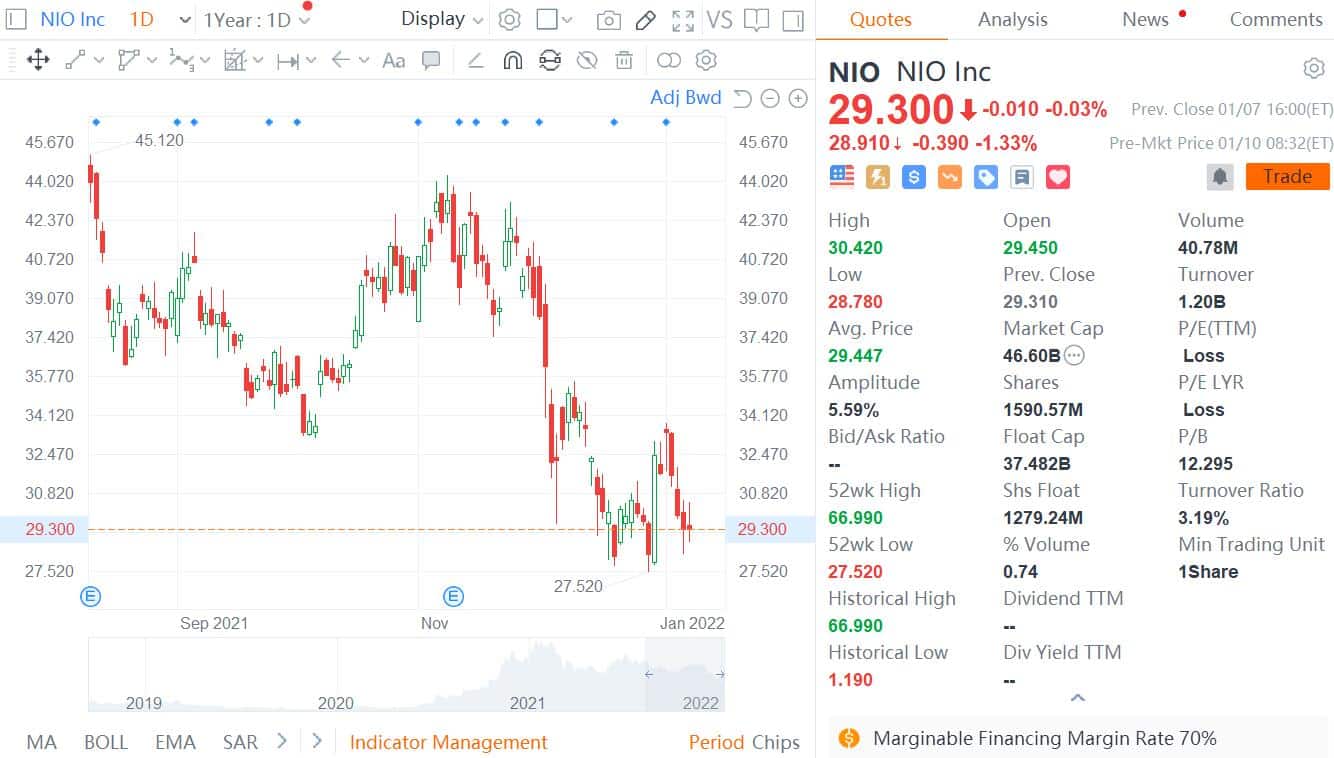HSBC's price target increase is not due to a change in their expectations for Nio's sales or valuation, but rather due to changes in exchange rates.
HSBC continues to be bullish on Nio in its latest research note, expecting the company to offer more models in 2022 and particularly bullish on the new sedan ET5 to drive its sales.
In today's note, HSBC analyst Yuqian Ding maintained a Buy rating on Nio, and raised the price target to $54 from $53 previously.
It is worth noting that this price target increase is not due to a change in HSBC's sales or valuation expectations for Nio, but rather due to exchange rate movements.
The team's previous valuation of Nio was based on a USD-RMB exchange rate of 6.4 for the end of 2021, and they are now based on a USD-RMB exchange rate of 6.55.
Nio closed down 0.03 percent to $29.30 on Friday, and that latest price target implies an upside of 84.3 percent.
Nio said last year it would deliver three new models based on the NT2.0 platform in 2022, including the ET7 sedan launched at Nio Day 2020 a year ago.
The company unveiled the new sedan ET5, the second model of the NT2.0 platform, at Nio Day 2021 on December 18. The third model based on the NT2.0 platform is still unknown.
HSBC believes that the ET7, ET5 and another model to be launched this year will help out the volume growth of the hyper-EV market.
At the same time, leveraging Nio's increasing self-driving capabilities, innovative monthly subscription model, and its strong brand awareness and consumer appeal, HSBC expects a strong product cycle to drive Nio's sales growth in 2022.
HSBC believes the ET5 will be a key driver of sales and expects the total addressable market for mid-size premium cars in China to exceed 500,000 units per year.
"ET5 has both premium EV features as well as advanced intelligence and connectivity experiences vs its conventional luxury brand peers. We estimate Nio’s 2022e volume growth at 79%, stronger than our growth forecast for China's EV market (37%)," HSBC said.
HSBC sees potential share price catalysts for Nio including strong volume growth, accelerating product cycles in 2022, and strong consumer acceptance of its in-house self-driving software.
Key downside risks include lower-than-expected sales volumes/margins, a potential long-term automotive chip shortage disrupting sales volumes, and intense competition in 2022.
